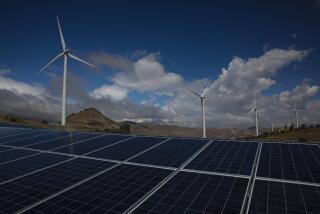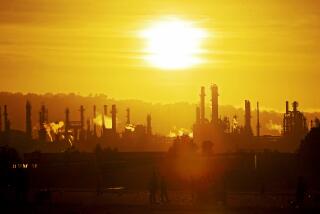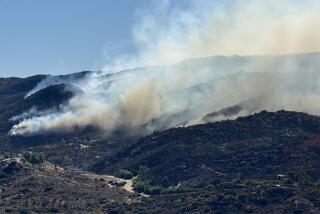Readers React: The fight against non-carbon dioxide greenhouse gasses
To the editor: The Times highlights the need to reduce short-lived climate pollutants to fully tackle global warming. California has a long history of leadership in this area. (“What about those other greenhouse gases?,” Editorial, Sept. 22)
For decades, California has been cutting emissions of particulate matter and black carbon from cars, trucks and agricultural burning. We have long been capturing methane emissions from landfills and oil and gas production, and have more measures under development. We are also taking steps to reduce fluorinated gases, including HFCs.
In fact, the Scripps Institution of Oceanography researchers referenced in the editorial found that if the world mimicked California’s actions on black carbon, we could slow global warming 15%. This year’s state budget includes $12 million from cap-and-trade proceeds for dairy digesters and other greenhouse-gas reduction measures in agriculture. The state’s clean energy and fuel programs also provide incentives for those projects.
You’re right though, we must do more, and we will. The Air Resources Board is currently working on a comprehensive plan to further reduce short-lived climate pollutants.
Mary D. Nichols and Karen Ross, Sacramento
Nichols chairs the California Air Resources Board; Ross is secretary of the California Department of Food and Agriculture.
..
To the editor: Climate change can’t be solved by cutting carbon dioxide alone. Methane has about 84 times the climate impact of carbon dioxide over a 20-year span.
Significant reduction of natural gas leaks from oil and gas operations is doable, and at low cost, but the states and federal government need to pass smart policies and regulations to see it through. California and a few others states are starting to get a handle on methane pollution. However, comprehensive action from Washington is needed to make sure the rest of the U.S. doesn’t lag behind.
Mark Brownstein, San Francisco
The writer is associate vice president for U.S. climate and energy at the Environmental Defense Fund.
Follow the Opinion section on Twitter @latimesopinion
More to Read
A cure for the common opinion
Get thought-provoking perspectives with our weekly newsletter.
You may occasionally receive promotional content from the Los Angeles Times.






